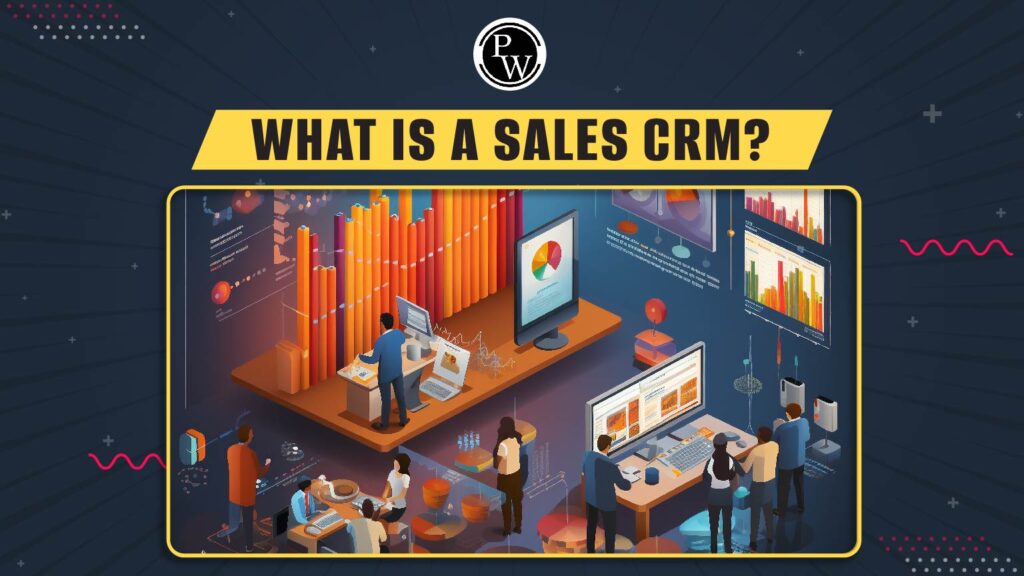Customer relationship management strategy is important for businesses to grow and generate revenue. In today’s fast-paced business world, building strong relationships with customers is more important than ever. A well-structured Customer Relationship Management (CRM) strategy is the way to achieve this. Whether you are a small business or a large enterprise, a solid CRM strategy helps you understand your customers, improve interactions, and drive business growth.
But where do you begin? In this guide, we will walk through everything we need to know about building an effective Customer relationship management strategy that delivers real results, ensuring we stay ahead in a competitive market.
What is Customer Relationship Management (CRM) Strategy?
A Customer Relationship Management (CRM) strategy is a well-thought-out plan that businesses use to manage and improve their relationships with customers. At its core, it focuses on how companies interact with current and potential customers to boost satisfaction, loyalty, and business growth.
When a business adopts a Customer Relationship Management strategy, they are aiming to build strong, long-lasting relationships. This means understanding customers’ needs, offering personalized services, and staying connected with them through every stage of the customer journey.
The CRM system itself is the tool that helps implement this strategy. It stores important customer data like purchase history, preference, and communication patterns. This data allows businesses to tailor their offerings, send targeted messages, and resolve issues more effectively.
A well-implemented Customer Relationship Management strategy brings many benefits. It helps companies provide better customer service, improve sales processes, and ultimately build stronger, more personal connections with their audience. It is not just about selling more, but about creating meaningful experiences that keep customers coming back.
Key Takeaways
- Customer Relationship Management strategy is a plan businesses use to manage and enhance relationships with customers.
- Customer relationship Management is a crucial concept especially for new startups.
- Focuses on interactions with both current and potential customers to boost satisfaction, loyalty, and growth.
- Aims to build strong, long-term relationships by understanding customer needs, offering personalized services, and staying connected throughout the customer journey.
- The CRM system stores key customer data to help businesses tailor offerings and improve communication.
Also, Check What is Zoho Customer Relationship Management Platform?
Importance of Customer Relationship Management Strategy
The importance of a Customer Relationship Management strategy cannot be overstated in today’s competitive business landscape. The vital importance of the CRM strategy is mentioned below:
-
- Improve Customer Retention: A well-executed CRM strategy helps businesses keep their customers happy and satisfied by providing personalized service, timely follow-ups, and effective problem-solving. This results in stronger customer loyalty and higher retention rates, which are essential for long-term success.
- Enhances Customer Experience: With a CRM strategy in place, you can track customer interactions, preferences, and history, allowing you to offer tailored experiences. This leads to better customer satisfaction, as customers feel valued and understood.
- Streamlines Business Processes: A Customer relationship management strategy helps automate and organize critical processes like sales, marketing, and customer service. It reduces manual work, improves team collaboration, and makes it easier to manage customer data, ultimately leading to more efficient operations.
- Boosts Sales and Revenue: By understanding customer needs and behavior, a CRM strategy allows you to target the right audience with personalized offers and recommendations. This can increase conversion rates, upsell opportunities, and drive higher sales, directly impacting revenue.
With the right CRM software implementing various features which help in tracking quality leads, increasing customer retentions, building effective marketing camapaign and much more on a single platform.
Customer Relationship Management (CRM) Strategy in Marketing
Customer Relationship Management (CRM) strategies are key to making marketing more effective and personalized. At its core, a CRM strategy helps businesses understand their customers better, allowing them to build stronger, more meaningful relationships. In marketing, CRM tools gather data about customers, such as their preferences, past purchases, and interactions with the brand. This data can be used to create tailored marketing campaigns that resonate with individual customers.
With a Customer relationship management strategy, businesses can segment their audience into different groups based on behavior, demographics, or interests. This ensures that each customer receives relevant, personalized content, whether it is through emails, social media, or other marketing channels.
For example, instead of sending the same generic email to everyone, CRM lets you target a customer with a message that fits their needs or preferences. This not only increases engagement but also builds trust and loyalty over time.
Another important aspect of CRM strategies is automation. Many CRM systems allow marketers to automate tasks like follow-up emails, reminders, and social media posts, saving time while ensuring customers feel valued. This consistent communication helps keep the brand top-of-mind, leading to stronger relationships and, ultimately, more sales.
Also, Check 10 Best Customer Relationship Management Software
How to Create an Effective CRM Strategy
Creating an effective Customer Relationship Management (CRM) strategy is key to building long-term customer relationships and boosting business growth. With the right CRM strategy in place, we can streamline our sales, marketing, and customer service efforts while keeping customers happy.
An effective Customer Relationship Management strategy can transform the way you interact with your customers and grow your business. By understanding customer needs, setting clear goals, leveraging the right technology, and continuously refining your approach, you can build stronger, long-lasting relationships that benefit both your customer and your company.
Let us understand the basic steps to create an effective CRM Strategy:
Understanding the Customer Needs
The foundation of any CRM strategy is understanding who the customers are and what they need. To do this, gather customer data from different sources such as surveys, social media interactions, or purchase history. This information will help in identifying patterns and preferences, allowing them to offer personalized services or products that meet their specific needs.
Set Clear Business Goals
A successful CRM strategy is aligned with the business goals. Whether the business is looking to increase customer retention, improve customer service, or boost sales. Clearly defining the goals will guide your CRM efforts and ensure that all your strategies are working toward the same objectives.
Also, check What are Financial Goals in businesses?
Choose the Right CRM Software
CRM software is a tool that helps to manage customer relationships efficiently. Many CRM platforms are available, so choosing one that fits your business size, goals, and needs is important. Look for features like automation, reporting, customer segmentation, and integration with other tools you use, like email marketing or e-commerce platforms.
Segment Your Customers
Not all customers are the same, treating them as such won’t get you the best results. Segmenting the customers based on behavior, demographics, or purchase history allows to tailor the marketing, sales, and support to different groups. This personalization helps build stronger relationships with customers because they feel understood and valued.
Automate Where Possible
Automation is a great way to save time and ensure consistency in customer interactions. We can automate things like follow-up emails, lead tracking, or customer service responses. This helps you stay on top of customer needs and allows the team to focus on higher-priority tasks like problem-solving or relationship-building.
Train the Team
A CRM strategy is only effective for the people who are using it. Ensure that the team understands how to use the CRM tools and follow the strategy you have outlined. Regular training sessions can help them stay updated on best practices and new features. A well-trained team will provide a seamless experience for customers across all touchpoints.
Analyze and Adjust Regularly
An effective CRM strategy is not set in stone. It is important to continuously review the results and adjust based on data and customer feedback. Look at the basic metrics like customer satisfaction, retention rates, or sales growth, and refine the approach accordingly. This flexibility will help your CRM strategy evolve as your business and customer needs change.
Become a Sales Manager at PW Skills
If you are looking for a shining career in sales and marketing then enrol in our Sales Manager Program in association with Yes Bank. Gain a strong knowledge of banking services, products and CRM strategies under this course and get a chance to work at Yes Bank as a Sales Manager.
This short online upskilling program features live classes, soft skills training with industry related curriculum and more only at pwskills.com
Customer relationship management strategy FAQs
Q1. What are the benefits of CRM strategy?
Ans. CRM strategy helps in creating better customer experiences, increasing efficiency, driving revenue, and building lasting relationships with customers, ultimately leading to business success.
Q2. How to develop a CRM Strategy?
Ans. By understanding customer needs, setting clear goals, leveraging the right technology, and continuously refining your approach, you can build stronger, long-lasting relationships that benefit both your customer and your company.
Q3. What is a CRM Strategy?
Ans. A Customer Relationship Management (CRM) strategy is a well-thought-out plan that businesses use to manage and improve their relationships with customers







